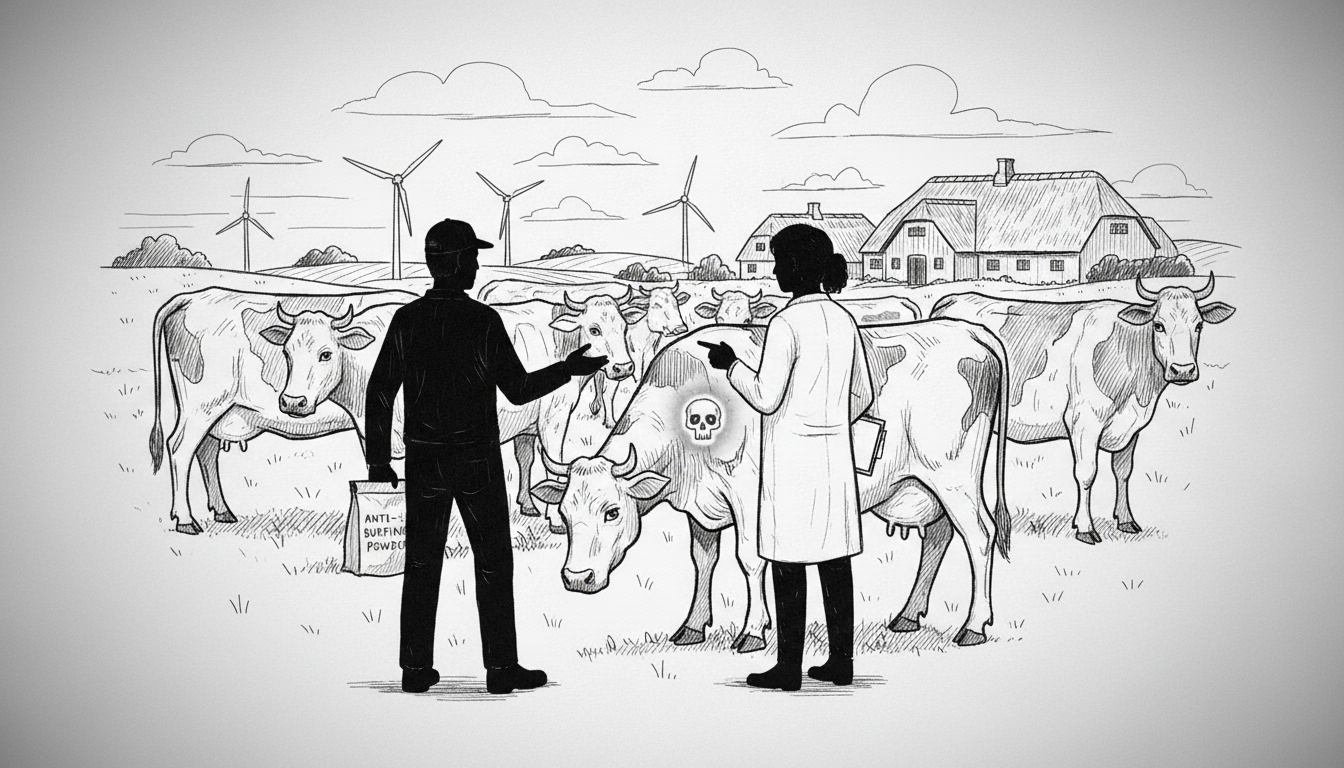A white powder marketed as a climate solution for cow burps is making animals sick in Danish barns. Farmers report health issues in their cattle after using the methane-reducing supplement. The situation raises questions about agricultural innovation and animal welfare.
Kjartan Poulsen initially dismissed the first reports coming from barns across Denmark. The calls kept coming about sick cows. He received 30 to 40 inquiries with identical symptoms. Farmers typically avoid reporting problems unless absolutely necessary. They prefer solving issues independently.
Danish agriculture faces pressure to reduce methane emissions from livestock. Cattle burps contribute significantly to greenhouse gases. The anti-burping powder represents one solution to this environmental challenge. Yet farmer experiences suggest potential unintended consequences for animal health.
Denmark's dairy industry produces approximately 5.4 billion kilograms of milk annually. The country has around 560,000 dairy cows. Any widespread health issue could impact both animal welfare and agricultural output. Farmers depend on healthy livestock for their livelihoods.
Agricultural regulations in Denmark require careful monitoring of animal supplements. The Nordic country maintains strict standards for livestock treatment. Farmers must balance environmental goals with animal wellbeing. This situation highlights the complexity of sustainable farming practices.
International readers should understand Denmark's position as a leading dairy exporter. The country supplies dairy products throughout Europe and beyond. Any disruption to Danish milk production could affect global markets. The Nordic approach to agriculture often emphasizes both productivity and sustainability.
The farmer reports come amid growing global focus on agricultural emissions. Many countries seek ways to reduce methane from livestock. Solutions must work effectively without harming animals. This Danish case shows the practical challenges in implementing climate-friendly farming methods.
What happens next with the anti-burping powder remains unclear. Farmers may hesitate to use similar products without stronger safety assurances. Regulatory authorities might review approval processes for agricultural supplements. The situation demonstrates how environmental solutions require thorough testing before widespread adoption.
Danish agriculture has historically embraced innovation while maintaining high animal welfare standards. This balance defines the Nordic approach to farming. The current issue tests that commitment to both sustainability and animal health. Farmers need reliable solutions that don't compromise their livestock's wellbeing.
The broader implication involves trust in agricultural innovations. Farmers must feel confident using new products that claim environmental benefits. When those products cause unexpected problems, it undermines confidence in future solutions. This could slow adoption of genuinely effective climate technologies.
Danish dairy farmers face enough challenges without added health concerns for their herds. They work with tight margins and strict regulations. Adding sick animals to these pressures creates significant operational difficulties. The situation warrants careful attention from both agricultural and environmental authorities.

